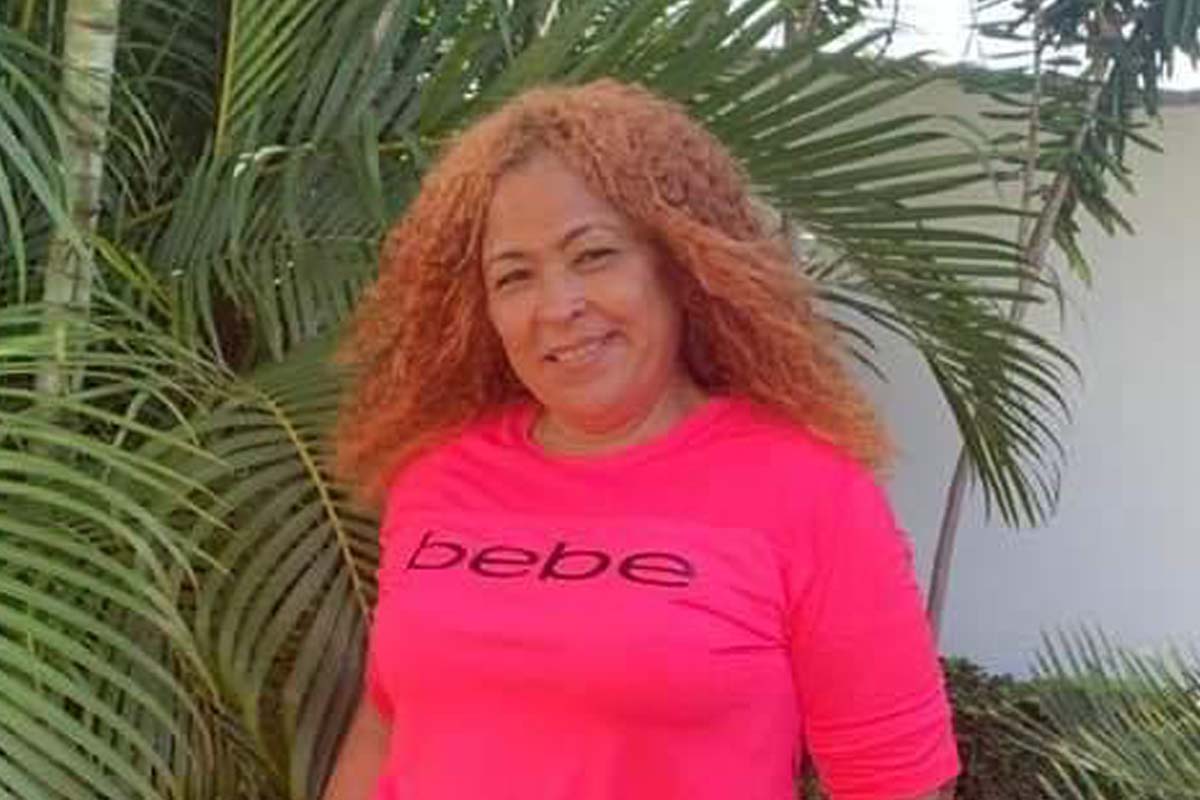A healthy diet is known to help prevent cancer. But a healthy diet is also crucial after a patient is diagnosed. Cancer treatments can rob patients of an appetite, but they still need to eat well to be strong enough for treatment.
That was the challenge for 51-year-old Lidia Rodriguez, diagnosed in March with stage 2 breast cancer. She had surgery and radiation at Lincoln Hospital near her home in the Bronx and now takes Tamoxifen, a medicine used to treat breast cancer and prevent its recurrence.
Besides some lingering pain in her breast, she’s feeling good today. And through a joint partnership between Memorial Sloan Kettering Cancer Center and Lincoln Hospital, she’s picked up healthy new eating habits that will further aid in her recovery.
Fulfilling a Need

Lidia Rodriguez
Food insecurity can make eating healthy difficult. More than 56% of NYC cancer patients surveyed by MSK say that they lack a consistent access to food, according to Francesca Gany, the founding chief of the Immigrant Health and Cancer Disparities Service at MSK. She connects underserved patients to health care access.
Lidia is part of an ongoing clinical trial led by Dr. Gany that will determine how to get nutritious food to patients who are food insecure. For the study, Dr. Gany and her team created healthy eating guides for Spanish-speaking breast cancer patients. They’re sharing the materials with patients like Lidia at local hospitals in underserved communities, including Lincoln, Montefiore Medical Center, and St. Barnabas Hospital in the Bronx.
Many existing materials are not tailored for patients like Lidia, a native Spanish speaker. An important requirement for the new materials is that they account for cultural nuances.
“We had focus groups that represented the full range of Spanish-speaking countries and regions within those countries,” Dr. Gany says.
Foods, too, were tailored to audiences. Dr. Gany said it was important to include dishes that were important to the various cultures of Latin America.
MSK FOOD Program
If you would like more information about the MSK FOOD program, please call 646-888-8046.
“We really wanted to make sure that the foods we were showing resonated across all of the different groups,” Dr. Gany adds.
Breast cancer patients were selected because the disease is the most common type of cancer, though Dr. Gany recently got approval to open the study to women with gynecologic cancers.
Back to topWhat’s Cooking?
Creating and sharing the eating guides is one part of the trial. Putting the information into practice is another. Each week, study participants receive groceries and use their newfound knowledge to prepare healthy foods. They also meet with Angelica Alvarado, the program’s clinical coordinator. She is bilingual and meets with participants for one-on-one nutrition counseling.
“We talk about salt intake, whole grains, nutrition labels, and what to eat to manage cancer-related side effects like nausea and bloating,” Ms. Alvarado says. “We also teach them how to shop at the grocery store for items that last longer and don’t cost as much, like beans and canned salmon.”
The advice benefits participants’ health and wallets.
“Undergoing cancer treatment can sometimes affect ability to work, and that’s very normal. With the pandemic, work has become less viable for many of our patients,” Ms. Alvarado says. “We want to provide support.”
Lidia has appreciated that support because she’s unable to work and no longer receives unemployment benefits. Through the study, she is able to receive the healthy items that are now part of her post-treatment care.
She has had no trouble incorporating new habits. She’s swapped canned fruits and vegetables for fresh ones, uses avocado oil in her cooking, and flavors her food with garlic and pepper, not salt. With guidance from Ms. Alvarado, she loves to make juices, oatmeal, eggs, and stewed lentils. She also now avoids fried foods.
She’s lost 15 pounds, and while she says some of that may be attributed to cancer side effects, she thinks the program played a role.
“I was a bit overweight and had high cholesterol, but I’ve lost weight and lowered my cholesterol,” she says. “I am so thankful for the program. It’s helped me quite a bit and I will continue to eat this way after it ends.”
The patient response has been “overwhelmingly positive,” Dr. Gany says. “Many say it’s the first time that they had ever been given cancer treatment nutrition information.”
Back to topLooking Ahead
As part of the study, Dr. Gany and her team are also learning how to best get the groceries into patients’ hands. Is it by having them pick up food at MSK’s food pantry? Getting food delivered to their homes? Or receiving vouchers to take to the supermarket? Patients are enrolled in the trial for six months, so there is ample time for the team to determine what’s working.
Ms. Alvarado says it can be hard to change habits, but through the program she’s seen it happen.
“Some of these things are ingrained,” she says. “It makes me very happy when I see patients try new things and really enjoy them.”
Back to top
"eat" - Google News
October 04, 2021 at 11:00AM
https://ift.tt/2WL8Ity
Food as Medicine: How MSK Is Helping Latinx Cancer Patients Eat Right - On Cancer - Memorial Sloan Kettering
"eat" - Google News
https://ift.tt/33WjFpI
https://ift.tt/2VWmZ3q
Bagikan Berita Ini














0 Response to "Food as Medicine: How MSK Is Helping Latinx Cancer Patients Eat Right - On Cancer - Memorial Sloan Kettering"
Post a Comment